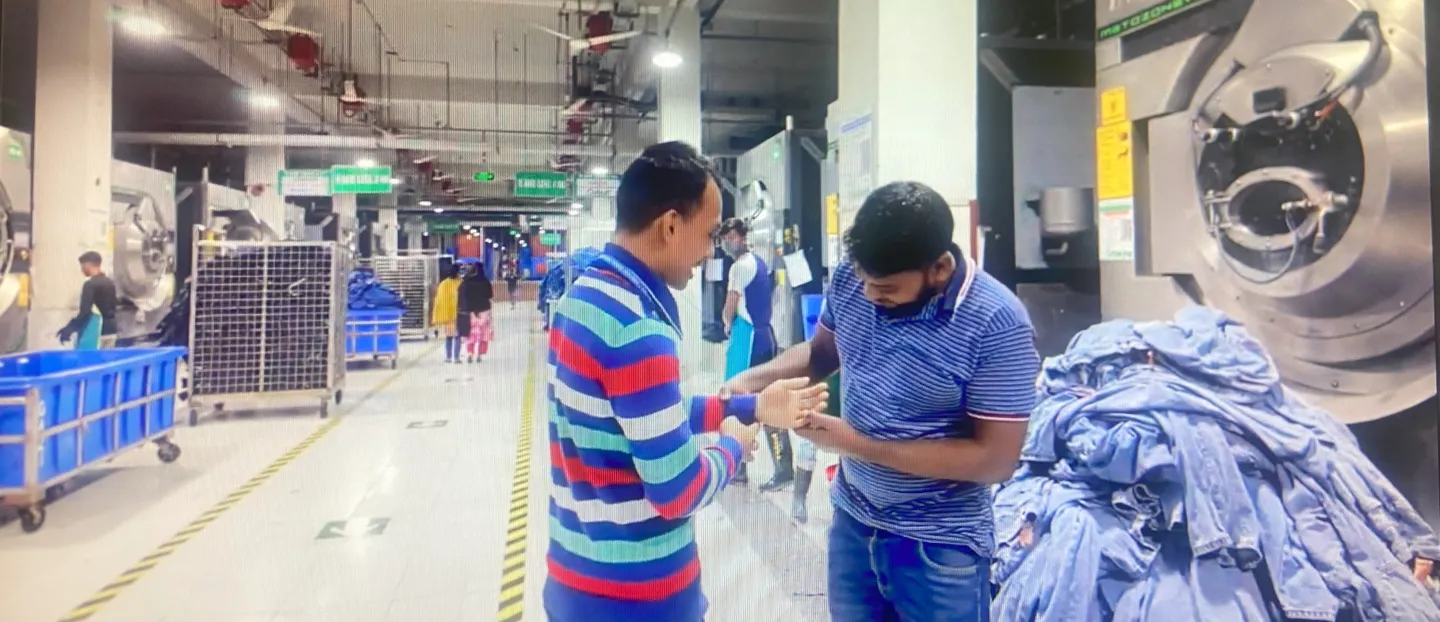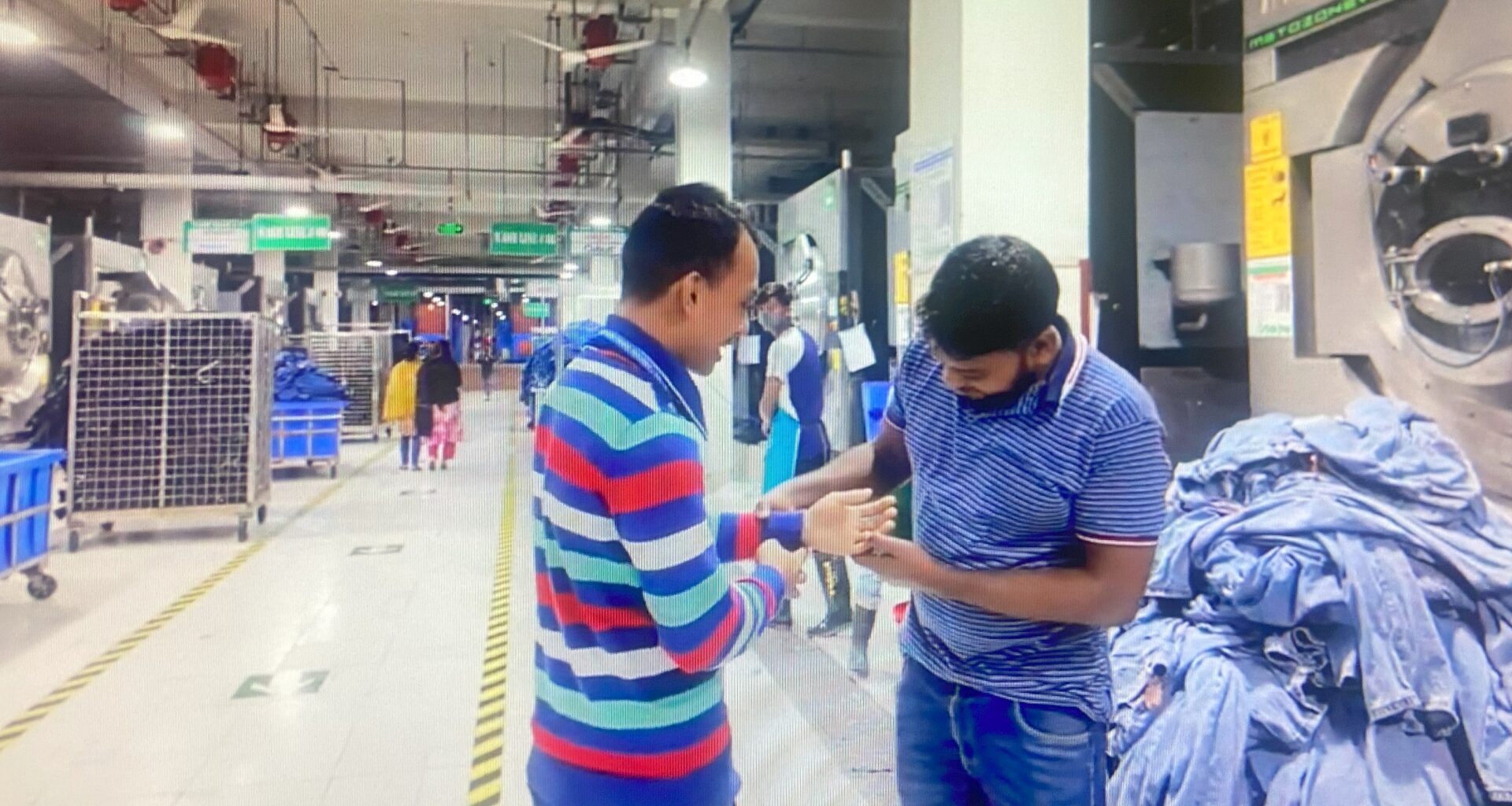Rahul Ruram, 30, can smile today. He is back to work after a factory accident that left him fearing he would no longer be able to work and support his young family.
The father of one, Rahul had worked as a machine technician at Vintage Denim Apparels Ltd, a readymade garment factory in Gazipur, Bangladesh for seven years until suddenly, on 4 September 2023, he was involved in a workplace accident. He was severely injured while cleaning machines resulting in the complete loss of his left hand.
“When I didn’t have a hand, anyone, even my father, would comfort me and say, ‘Don’t cry, we are here’. Everyone tried to comfort me,” said Rahul. “We were in such a situation that we didn’t know what to do. One hand was gone!”
Doctors told him there was nothing that could be done to fix his hand.
“The only thing that was on my mind was that I would have to deal with my problem on my own,” he recalls emotionally.
Through an employment injury scheme (EIS) being piloted in Bangladesh’s readymade garment sector, Rahul was able to access treatment promptly.

© ILO
Rahul Ruram shows a colleague his new prosthetic arm upon return to work at the Vintage Denim Apparels Ltd
Doctors from the country’s Department of Inspections for Factories and Establishments (DIFE) in the Ministry of Labour and Employment, established that Rahul had 100 per cent disability and recommended lifelong compensation.
They assessed his injuries according to the Bangladesh Labour Act 2006 schedule of workplace injuries and found that he was eligible to receive an allowance of 60 percent of his basic salary as lifetime compensation, which would be paid monthly.
“The money helped me tremendously. I can’t even express my feelings when I got the money,” he said.
Over and above the injury compensation, his employer gave him a new job as a lift operator.
Video story
This video explains the process Rahul Ruram went through to get employment injury compensation.
